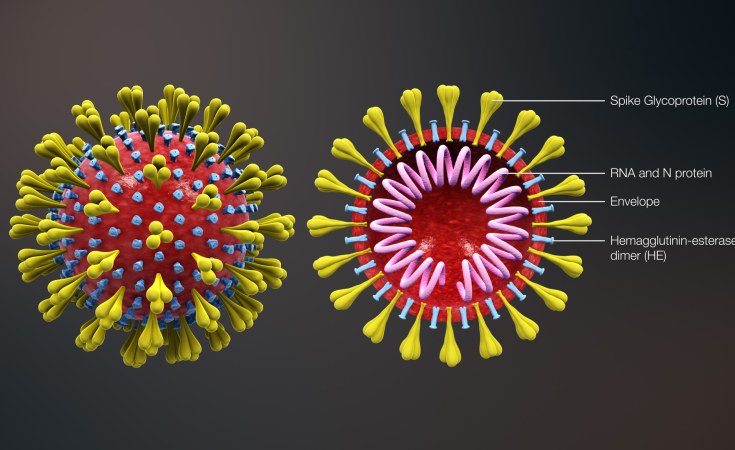London — The death toll from the mysterious new coronavirus that originated from China has topped 900, and infections have skyrocketed to 40 000. Many comparisons are being drawn to the 2003 SARS epidemic, which was also caused by a coronavirus with an epicentre of southern China.
I was a medical student in southern China at that time and was among those quarantined for coming into contact with a fellow student who was a suspected SARS case. I saw first hand how the Chinese government, after an initial delay, launched a comprehensive campaign to manage SARS, by putting its public health and medical capabilities on full alert. I also observed how other countries stepped in to support their nationals residing in China, for example by setting up support helplines and working with the Chinese Ministry of Foreign Affairs to direct their nationals to hospitals with more English-speaking staff.
Unfortunately, African countries did not provide any tailored support for their nationals at the time of SARS, not even the foreign students like me who were there on government scholarships. One West African student at a neighbouring university suffered an exacerbation of her mental illness because of the loneliness and stress from the isolation measures and attempted suicide.
Right now, there are 5000 Africans in Wuhan, the epicentre of this epidemic, alone, and even more in the surrounding areas who are susceptible to infection. These are three ways African governments can avoid a repeat of what happened during SARS and support their nationals better this time.
First, embassies of African countries in China must quickly update their databases of their nationals in China – perhaps by first working through student and diaspora groups - and then set up regular communication channels. If possible, they should provide psychological support, like hosting regular teleconferences for briefings and prayer sessions, and financial support to help their nationals buy food supplies and phone and wifi packages to stay better connected with their families and friends back in Africa.
This is especially important for Africans in Wuhan, which is currently under lockdown. At present, there is no African government with an embassy or consulate in Wuhan, leaving African embassy officials in China to rely on support from countries with consulates there such as France, Korea, US and the UK on the ground in the city. One quick win would be for embassies to share information and support through the already existing self-organized student and African diaspora groups. For example, the Ugandan Students Association in China is already actively liaising with us China alumni through our Whatsapp group for advice and support, especially from those of us who were there during the SARS epidemic.
Second, African governments have a role to play in ensuring their embassies in China deliver faster and better coordinated support to their nationals at this moment of crisis. According to Hannah Ryder, CEO of a China-based development consultancy, many African embassies in China are under-resourced. I saw this first-hand as a government-sponsored student in China. The Ugandan government was meant to top-up the living stipend I received from the Chinese government, but the top-up was always delayed by at least three months. In this corona virus crisis, African governments must funnel more funds to their Chinese embassies. Countries like the US, Japan, France and Sri Lanka are sending planes to evacuate their nationals from Wuhan. It is likely most African countries cannot afford mass airlifts. However, they could declare this coronavirus epidemic a national emergency, like the Italian government has, and therefore access funds from their ministries of finance or those of disaster and emergency preparedness and send them to their embassies in China.
Thirdly, while individual countries should do all they can to shore up disease detection and surveillance at their ports of entry, the Africa Centre for Disease Control (CDC) has a unique role to play and international agencies should direct more funding to them to prevent the coronavirus, like the Gates Foundation just did. Direct airline flights between China and Africa have increased over 600% in the past decade. So far, suspected coronavirus cases have been identified in Ethiopia, Kenya and Côte D'Ivoire, all of them having travelled from China. The Africa CDC should coordinate the screening, diagnosis and management of suspected cases, especially in countries with limited public health surveillance and epidemic management capabilities.
To be sure, some African countries are already doing a commendable job in addressing the present needs of their citizens. For example, Morocco and Algeria evacuated their nationals in Wuhan back home. There are also reports that African embassies are using the diplomatic corps channels in Beijing to get up to date info on events as they unfold across the country. The Egyptian embassy has reportedly created a mobile app to communicate with Egyptian students in China. However, more needs to be done in a fast and visible way. In such public health emergencies, perceptions of action and responsiveness are important too.
The coronavirus epidemic is a challenge of epic proportions. We must all play our part, including African countries.
Serufusa Sekidde is a medical doctor who currently works at a pharmaceutical company in London. Sekidde is a Senior Fellow at the Aspen Institute's New Voices Fellowship.


